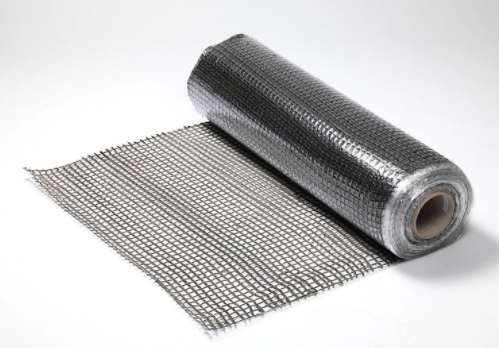Road Test: Simpson Strong-Tie Partners with the University of Texas to Test and Supply New Pavement Reinforcement Technologies
Simpson Strong-Tie, the leader in engineered structural connectors and building solutions, today announced the development and launch of a category of pavement reinforcement technologies designed to improve the sustainability, longevity and resiliency of asphalt-paved road surfaces in North America.
 Carbophalt and Glaphalt asphalt reinforcement grids from Simpson Strong-Tie are tested and proven to extend the service life of roads, highways and other heavy-use areas.
Carbophalt and Glaphalt asphalt reinforcement grids from Simpson Strong-Tie are tested and proven to extend the service life of roads, highways and other heavy-use areas. Following a 20-year history in Europe, Simpson Strong-Tie Carbophalt® and Glasphalt® reinforcement grids have been proven to limit water penetration and crack reflection in road surfaces caused by heavy traffic, weather, and structural fatigue, significantly increasing the service life of the roadbed and eliminating the need for spot interventions like crack bridging and road patching.
Following a 20-year history in Europe, Simpson Strong-Tie Carbophalt® and Glasphalt® reinforcement grids have been proven to limit water penetration and crack reflection in road surfaces caused by heavy traffic, weather, and structural fatigue, significantly increasing the service life of the roadbed and eliminating the need for spot interventions like crack bridging and road patching.
















